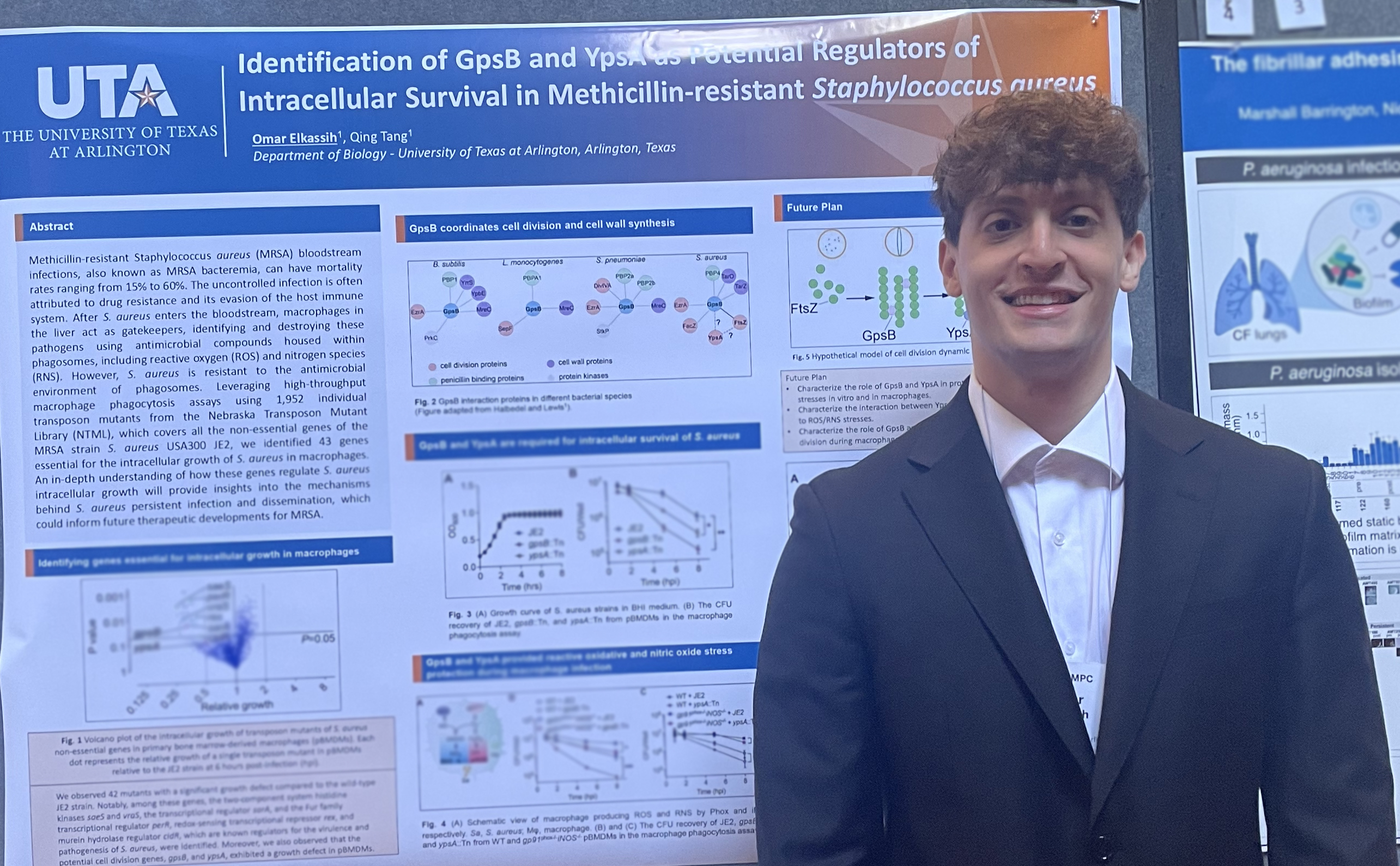Macrophages act as the gatekeepers to detect and resolve bacterial infections. Bacteria phagocytosis by macrophages may lead to intracellular killing, destroying the bacteria by producing antimicrobials including reactive oxygen species (ROS) and nitrogen species (RNS) in the phagosomes. However, S. aureus is resistant to the antimicrobial environment of phagosomes, using these compartments to hide from immune cells and antibiotics. Ultimately, S. aureus will proliferate in the cytoplasm, and cause macrophage death, eventually enabling further bacterial dissemination. The interactions between macrophages and S. aureus directly impact the outcome of the infection. In depth understanding of these host-pathogen interactions could provide insights for future therapeutic developments for MRSA. Omar works on the identification of S. aureus genes that are essential for intracellular growth in macrophages. He has found that the potential cell division protein GpsB is not required for growth in rich medium but is necessary for intracellular growth of S. aureus in macrophages. He later found that GpsB knockout mutant is more susceptible to the ROS produced by macrophages. Omar is currently characterizing the mechanism of GpsB in pathogenesis.
